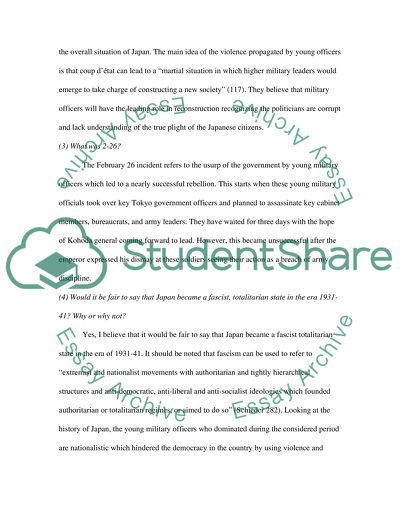Modern History of Japan Essay Example | Topics and Well Written Essays - 500 words. Retrieved from https://studentshare.org/history/1543823-modern-history-of-japan
Modern History of Japan Essay Example | Topics and Well Written Essays - 500 Words. https://studentshare.org/history/1543823-modern-history-of-japan.


